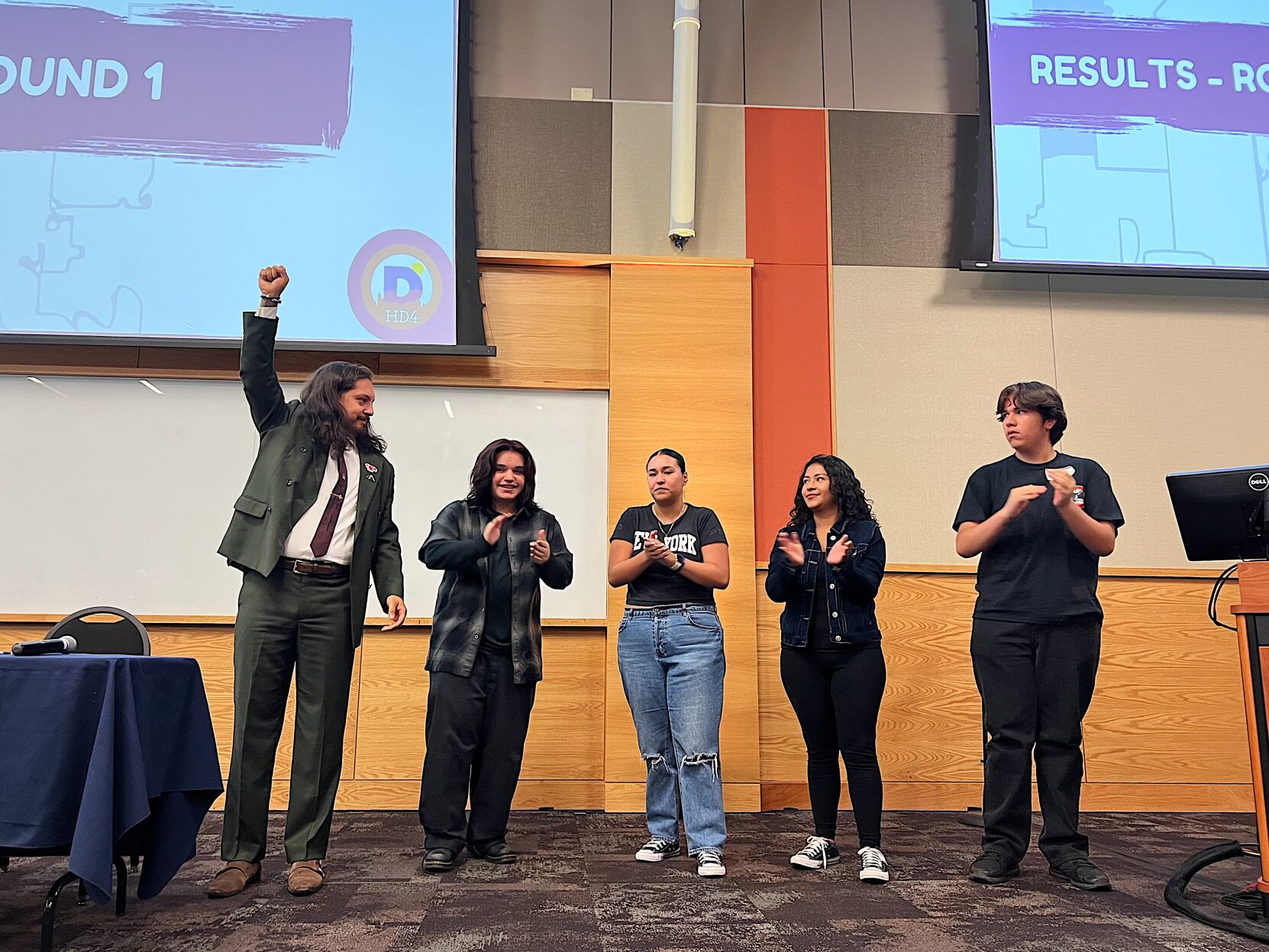Rep.-elect Tim Hernández on activism and legislating, Polis backs pot rescheduling | WHAT YOU NEED TO KNOW

Today is Sept. 6, 2023, and here’s what you need to know:
Sixteen months ago, Tim Hernández lost his job teaching at North High School. Today, he represents the school’s northwest Denver district in the Colorado House of Representatives.
A committee of Denver Democrats selected Hernández to represent House District 4 on Aug. 26, as the district’s former representative, Serena Gonzales-Gutierrez, resigned to join the Denver City Council. A lifelong Northsider, Hernández won the vacancy election over two opponents in a single round of voting, receiving 39 of 68 votes.
Hernández, 26, exploded onto Denver’s political scene after North High School did not extend his contract as the school’s only Latino literature teacher last year. This decision sparked multiple student rallies supporting Hernández and protesting the lack of diversity among educators. Hernández was put on administrative leave for joining the rallies, but he soon found other employment teaching in Aurora and became a mainstay progressive activist in Denver.
Hernández will be officially sworn into the House later this month. While he is only guaranteed office for one year to finish Gonzales-Gutierrez’s term, Hernández said he plans to run for the seat in the 2024 election. Ultimately, though, his goal is to return to North High School as a teacher.
Days into his new role, Hernández sat down with Colorado Politics to discuss the year ahead and how he will transition from a community organizer to a state legislator.
As the federal government considers lowering marijuana’s classification as among the riskiest drugs, Gov. Jared Polis is expressing his support.
Polis sent a letter to President Joe Biden on Tuesday backing the U.S. Department of Health and Human Services’ recommendation that marijuana be removed from the Schedule I classification – reserved for dangerous drugs posing the same risks as LSD, peyote and heroin – and instead be moved to Schedule III.
“It’s about time,” Polis said in the letter.
While the decision whether to reclassify marijuana rests with the Drug Enforcement Administration, Polis also called on Biden to support federal action to allow marijuana businesses access to banking services, reduce criminal penalties for marijuana possession and distribution, and address “immigration related consequences.”
Feel as if it’s a little more crowded these days around your neighborhood, out on the road and where you work, shop and play?
It’s not your imagination; Colorado Springs and the Pikes Peak region continue to grow – as they have for decades.
The Springs’ population climbed to just over 485,000 at the halfway point of last year, according to the most recent estimate available from the Colorado Demography Office, which tracks population and other demographic trends. Over the last 20 years, the city has gained almost 109,000 people – roughly the equivalent of adding the current population of Greeley over that two-decade stretch.
More people mean more homes in fast-growing neighborhoods and more cars traveling area roads.
Leaders of the Colorado House have agreed not to violate the state open meetings law in a proposed settlement to a lawsuit filed by two first-year Democratic legislators.
Pending approval from a judge, the settlement states that House representatives will not communicate using automatically-deleting functions on electronic messaging services, nor will they meet in quorum to discuss public business without providing public notice and publishing minutes of the meeting.
By agreeing to the settlement, the House leaders are not admitting wrongdoing. The settlement is proposed as “an amicable resolution” and to “(avoid) the costs of litigation,” the document reads.
Colorado’s federal trial court last year saw civil cases take an unprecedented amount of time – more than 43 months since filing, on average – to reach a jury trial, as well as a historically high rate of acquittals in criminal cases.
On Aug. 30, U.S. Magistrate Judge Michael E. Hegarty presented a wide-ranging statistical report about the business of Colorado’s U.S. District Court in 2022. Although the presentation was chiefly intended to inform attorneys about what to expect when litigating their cases, Hegarty and two of his fellow judges in attendance added their own observations about behind-the-scenes logistics and trends.
Specifically, Hegarty emphasized how the appointment of two new district judges and the hiring of three magistrate judges in 2022 alone affected the court’s workload.

hannah.metzger@coloradopolitics.com




